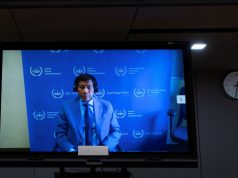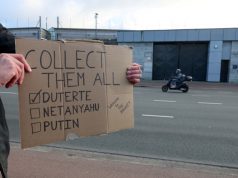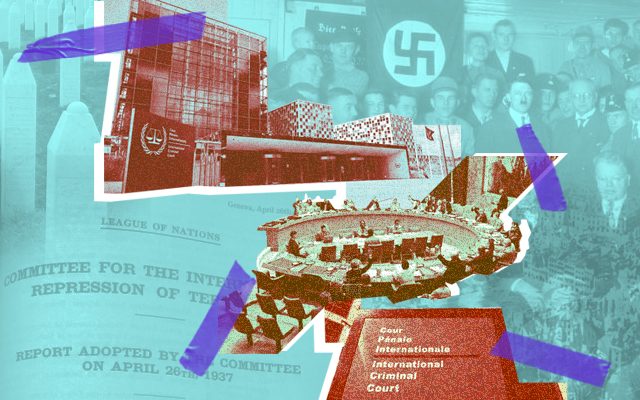
The idea of establishing an international criminal tribunal was first proposed in the aftermath of the First World War. Under a proposed treaty drafted in 1937, this tribunal was supposed to have a limited jurisdiction only over acts of terrorism arising, at that time, from the random killings of politicians and diplomats. Unfortunately, this idea just died a natural death when it was overtaken by World War II.
In the aftermath of the Second World War, an International Military Tribunal based in Nuremberg was brought into existence by the four victorious allied powers. This tribunal was the first of its kind. It put on trial and convicted top German Nazi war criminals in a record time of just one year.
The Nuremberg tribunal signaled the advent of individual responsibility over international crimes, trumping the shibboleth of sovereign immunity. It also upheld the legal principle of command responsibility which was also applied by the International Military Tribunal for the Far East, as confirmed later by the United States Supreme Court in the case involving Yamashita.
It is the charter of this Nuremberg Tribunal, particularly under its Article 6(c), that first defined a particularly atrocious crime now called crime against humanity, understandably a contemporaneous response to the Holocaust committed by Nazi Germany against the Jews.
The notion of an international penal tribunal resurfaced in 1948 during the time when the Nuremberg judgment, delivered in 1946, still reverberated, or particularly when the Genocide Convention came into existence. This 1948 Convention stipulated, by way of universal jurisdiction, that a person responsible for genocide should be prosecuted in the state where he commits the offense or where he is found or in an “international penal tribunal.”
But no such international penal tribunal was ever created by the international community after the Genocide Convention in 1948, even in the midst of the genocidal atrocities committed thereafter. Notable of these genocidal atrocities were those committed in the 1988 Anfal campaign of Saddam Hussein who ordered the massacre of thousands of Kurds in Halabja after his defeat in Kuwait.
Early efforts to form an international tribunal
For almost half a century after Nuremberg, there has been no other international tribunal similar to the Nuremberg tribunal. Only regional human rights courts took up the cudgels for human rights. The more significant is the European Court of Human Rights established under the European Convention of Human Rights. Based in Strassbourg, France, this stunningly successful court has rendered notable decisions on human rights cases that helped crystallize principles of international criminal law.
There is also the Inter-American Court of Human Rights created under the American Convention on Human Rights, which encompasses countries in the American continent. At the same time, the Privy Council consisting of British Law lords acts as the external court, in relation to human rights cases, of countries comprising the British Commonwealth and Caribbean.
The African human rights court does not deserve any mention for being utterly powerless. There has never been a regional human rights court in Asia. For a time, Russian Premiere Gorbachev revived the idea of the creation of an international court to try terrorist offenses. There was a proposal from another state for an international court to try cases of drug trafficking.
The movement for human rights, meanwhile, gained momentum from human rights declarations and conventions, notable of which are the Universal Declaration of Human Rights in 1948, the Genocide Convention in the same year and the 1949 Geneva Conventions followed by the 1977 Protocols.
Then came the Convention on Civil and Political Rights in 1976. The Torture Convention came into force in 1984, which was spurred by the systematic torture practices by the military juntas in Latin America, spearheaded by General Pinochet of Chile and exported by him thru his Operation Condor to other military juntas in other Latin American countries primarily Argentina.
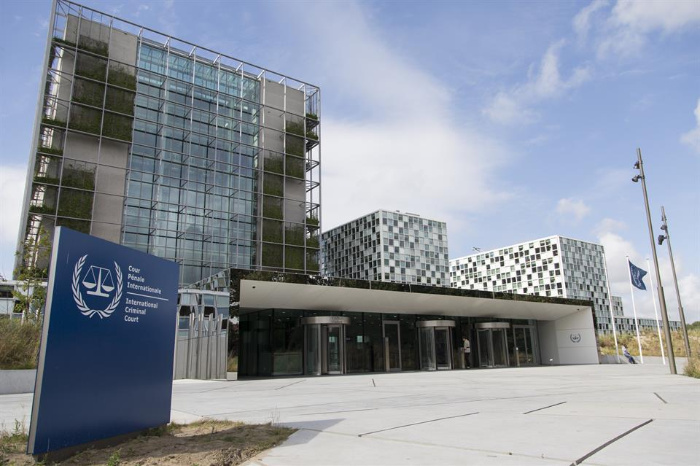
Indeed, while human rights were printed on paper, in fact reams of paper, produced by diplomats, there was no effective legal enforcement on a world scale that could decide on an individual’s criminal responsibility and punishment, despite the atrocities being committed by rapacious regimes. It is an adage that a system of rules or law can only be meaningful if there is an effective legal enforcement that would bring perpetrators to justice and condemn them to imprisonment. In other words, rights, let alone human rights, are useless, if the offender remains unpunished.
That was precisely the situation after Nuremberg when human rights violations of states simply became the subject of periodic reviews and monitoring by the UN Human Rights Commission and later the UN Human Rights Council. There was a Human Rights Committee established under a Protocol of the Convention on Civil and Political Rights which allowed for individuals to complain. But these UN agencies could not adjudge a person criminally responsible or cause him to be imprisoned for certain atrocities—something which only a criminal tribunal could do.
Precursors of the ICC
Ethnic cleansing in Yugoslavia
It was not until in 1991 in Yugoslavia when the specter of ethnic cleansing returned to Europe on a scale unseen since the Holocaust that the UN began to act, but sadly it failed to stop the genocide in Bosnia and Hercegovina.
As a face-saving measure, the UN finally began to take a fig-leaf measure by establishing the International Criminal Tribunal for Yugoslavia or ICTY for short, to punish persons responsible for atrocities in Yugoslavia.
The ICTY is a subsidiary organ of the UN Security Council created by its Chapter VII powers under the UN Charter to maintain and restore international peace and security. It is an ad hoc criminal tribunal sitting in the Hague, Netherlands for the specific situation in Yugoslavia, with criminal jurisdiction to try international crimes. It was the first truly international criminal tribunal and the first to record a conviction for genocide.
Its first indictee, a Bosnian Serb named Dusko Tadic, a mere footsoldier, was convicted of and sentenced to prison for several counts of crimes against humanity. The ICTY also tried authors and commanders of the Bosnian Serb ethnic cleansing including Bosnian Serbs Karadzic and Mladic who were responsible for the massacre of 7,000 Muslim men and boys at Srebrenica. The most notable respondent was former Serbian head of state Slobodan Milosevic, who was only able to elude conviction as he died mid-trial without a verdict.
Rwandan genocide
In response to the genocidal bloodbath in Rwanda in 1994, the UN Security Council also established the International Criminal Tribunal for Rwanda or the ICTR based in Arusha, Tanzania. The ICTR, which is an offshoot of the ICTY, is also an ad hoc criminal tribunal limited only to the specific situation in Rwanda. It convicted the first head of state for genocide in the person of Rwandan Prime Minister Jean Kambanda who confessed his guilt.
Initially, world leaders played blind to the Rwandan killings which started in April 1994,pretending that what was happening was not genocide. It was only much later, just like in the case of Yugoslavia, that the UN acted to create the ICTR, but regrettably only after the bloodbath had already claimed thousands of lives.
Unlike the ICTY and ICTR, the Special Court for Sierra Leone is an international criminal court established by a bilateral agreement between the UN and the government of Sierra Leone. It is a hybrid international criminal court applying only international criminal law to the armed conflict in Sierra Leone.
Sierra Leone civil war: A sitting president convicted
This Sierra Leone Special Court, sitting in Sierra Leone, indicted Liberian politician Charles Taylor, for crimes against humanity for his role in financing and supporting the bloodthirsty rebel force led by Foday Sankoh that waged war against the Sierra Leonean government.
In preliminary proceedings challenging its lawful jurisdiction to indict a sitting leader like Charles Taylor, this court pronounced itself as an international court, as it was not part of the Sierra Leone legal justice system. As an international court, it was could legally indict a sitting head of state as it was not part of that very state.
Its ruling was not contrary to the decision of the International Court of Justice in the case of Democratic Republic of Congo vs. Belgium that a state cannot prosecute a sitting head of another state, on the principle that states are equal.
The Special Court of Sierra Leone indicted Taylor even at a time when he was still president of Liberia. Indeed, it was a landmark and authoritative legal precedent for an international criminal tribunal to indict an individual even while he was still in power and enjoying sovereign immunity in his own country.
“It was an authoritative legal precedent for an international criminal tribunal to indict an individual who was still in power and enjoying sovereign immunity in his own country.”
Due to mounting pressure on account of the arrest warrant against him, Taylor later resigned and fled into exile in and protected by Nigeria. Later, Liberia demanded his surrender, and brought him to the Sierra Leone court, but, for security concerns, he was later taken to the premises of the International Criminal Court and was later tried there.
The Special Court for Sierra Leone convicted Taylor for abetting and aiding crimes against humanity. He is presently serving his sentence at a prison in Great Britain.
Birth of the Rome Statute and the ICC
These international criminal tribunals are the precursors of the International Criminal Court, which later took shape in 1998. After more than half a decade since Nuremberg, 120 countries voted for its creation through a treaty called the Rome Statute of an International Criminal Court in a conference in Rome.
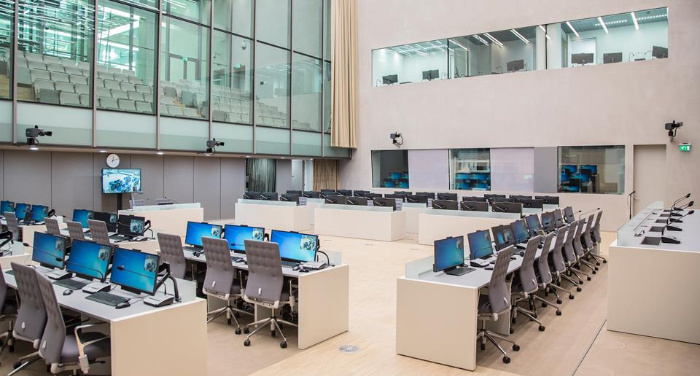
Unlike its predecessors, the ICC is the first truly permanent international criminal court which is independent of the UN, while maintaining coordination with it. Gone are the days when the international community, through the UN, would have to create ad hoc criminal tribunals in response to country-specific atrocities. The age of legal enforcement in international criminal law has finally dawned.
“It is sad to note that the ICC came into being more than a decade after the fall of dictator Ferdinand Marcos.”
After so many years of lobbying, through the efforts of the Philippine Coalition for the International Criminal Court, the Philippine Senate ratified the Rome Statute and the Philippines became a state party to the treaty in 2011.
With the ratification, the Philippines consented to be bound by the penal jurisdiction of the ICC, the exercise of which can legally continue for legal matters already pending before it, notwithstanding a subsequent withdrawal, as expressly provided for in the Rome Statute.
It is sad to note that the ICC came into being more than a decade after the fall of dictator Ferdinand Marcos. Had there been an ICC at that time, Marcos may well have been indicted and punished before the court.
But as a measure to end impunity now in the era of legal enforcement in international criminal law, President Rodrigo Duterte, who is an avowed fan of Marcos, stands in contempt as the first sitting head of state, in the Philippines as well as in Asia, to be subjected to an ongoing preliminary examination in the ICC for a particular crime against humanity.
Under the legal precedent in the case of Liberian President Charles Taylor, Mr. Duterte can legally and validly be indicted by the ICC even if he is a sitting head of state and still enjoying domestic immunity.
Ironically, at a time when legal enforcement is already at hand to end impunity, Mr. Duterte will go down in infamy as a head of state withdrawing in panic and fright from the ICC, against the unstoppable worldwide momentum of global justice, in order to subvert and evade its overarching international criminal jurisdiction over him for mass murder. — Artwork by Uela Altar-Badayos
Views and opinions expressed are solely those of the author, Jude Sabio. He is a lawyer known for filing a communication at the International Criminal Court in The Hague accusing President Rodrigo Duterte and his top officials of crimes against humanity in the conduct of the brutal war on drugs. Sabio reflects on the history of the ICC in this op-ed contribution for Interaksyon.




